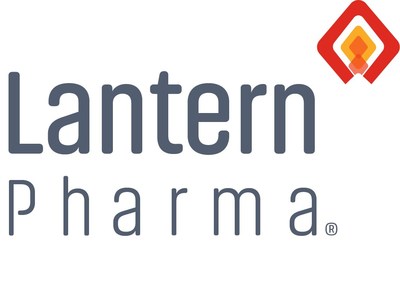Lantern Pharma Announces Publication Detailing Preclinical Results of Drug Candidate, LP-184, in a Spectrum of Drug-Resistant Lung Cancers in the Journal Oncotarget
Lantern Pharma Inc. (NASDAQ: LTRN) announced the publication of a manuscript in Oncotarget detailing the efficacy of its drug candidate, LP-184, for treating non-small cell lung cancer (NSCLC). LP-184 has shown nanomolar potency against therapy-resistant NSCLC models, surpassing conventional chemotherapeutics in effectiveness. The unmet need addresses patients resistant to current therapies, with 30-40% of lung cancers lacking targetable mutations. The research identifies patient subgroups likely to respond to LP-184, supporting its potential as a viable treatment option in oncology.
- Publication of LP-184 efficacy in Oncotarget validates its potential against resistant NSCLC.
- LP-184 demonstrates nanomolar potency superior to traditional chemotherapy agents.
- Identified patient subgroups may benefit significantly from LP-184 treatment.
- None.
Insights
Analyzing...
DALLAS, April 26, 2021 /PRNewswire/ -- Lantern Pharma Inc. (NASDAQ: LTRN), a clinical stage biopharmaceutical company using its proprietary RADR® artificial intelligence ("A.I.") platform to transform oncology drug discovery and development, announced a manuscript describing the efficacy profile of LP-184 in a variety of non-small cell lung cancer models was published in Oncotarget. The manuscript is titled 'The acylfulvene alkylating agent, LP-184, retains nanomolar potency in non-small cell lung cancer carrying otherwise therapy-refractory mutations'. LP-184 is being developed by Lantern for the potential treatment of non-small cell lung cancer (NSCLC) among several other targeted indications in solid tumors including pancreatic and CNS cancers.
The unmet clinical need where LP-184-based therapy could potentially be valuable is for those non-small cell lung cancer patients that are ineligible for targeted therapy options or have developed resistance to other forms of therapy. Existing targeted therapies, such as EGFR or ALK inhibitors, only work in specific, genetically defined patient subsets. There's a sizable fraction of lung cancers — 30 to 40 percent — that do not have those targetable alterations, or have developed resistance to the current standard of care therapies which can often leave lung cancer patients without additional therapeutic options. According to Panna Sharma, CEO of Lantern Pharma, "More people continue to die of lung cancer every year than any other type of cancer, and significant improvements have been made in the era of targeted and combination therapies; however, many lung cancers rapidly evolve and form resistance to both targeted agents and chemotherapy combinations, and there is a major clinical need for new options and potentially extending patient lives further." Mr. Sharma continued, "With this additional indication for our DNA-damaging agent, LP-184, we continue to invest in the development of therapeutic options for increasing the personalization of therapy for lung cancer patients."
This publication in Oncotarget highlights LP-184's nanomolar in vitro potency in primary and metastatic NSCLC models. It also demonstrates that LP-184 is generally more potent in vitro than commonly prescribed platin and taxane based chemotherapeutics. Based on the research conducted, the activity profile of LP-184 is not influenced by the presence of mutations in key oncogenes such as KRAS or KEAP1 and tumor suppressors such as TP53 and STK11, that otherwise underlie resistance to other drugs. LP-184 is believed to be a promising drug candidate that can address the treatment of KEAP1 mutant NSCLC, because the mutations up-regulate expression of PTGR1, and increased PTGR1 in turn makes tumor cells increasingly sensitive to LP-184.
Additionally, LP-184 showed tumor growth inhibition in a mouse xenograft model of KRAS/KEAP1 mutant lung cancer. Co-occurring KRAS and KEAP1 mutations occur in about 17 percent of lung adenocarcinoma cases and are believed to represent an aggressive form of lung cancer that is believed to be "undruggable". Lantern Pharma has developed a genomic signature that is believed to predict response in tumors that will be responsive to LP-184. This correlation and pinpointing of clinical need were supported by further TCGA analysis of 517 lung adenocarcinoma patients, out of which
According to Mr. Sharma, "Using our data-driven approach we have shown that not only can we find unique biomarkers that link to drug response and mechanism, but we can also rapidly uncover clinically meaningful patient subgroups that can benefit from our portfolio of therapies." Mr. Sharma continued, "By understanding the genomic and biomarker characteristics driving a compound's activity in various sub types of cancer, we can rapidly develop new meaningful indications that have the potential to deliver life changing therapy options for cancer patients — and we can do this faster and with better insights as a result or our RADR® platform. We will continue to invest into increasing the data, scope and functionality of the A.I. platform and expect that it will be able to play a wider role in cancer therapy development.
Lantern is continuing to validate LP-184 sensitivity in advanced lung tumor models both as monotherapy and in combination with drugs prioritized by Lantern's RADR® models, to increase the potential future benefit to patients with tumors that are or have become otherwise "undruggable" or non-responsive to existing approved therapies.
About Lantern Pharma
Lantern Pharma (LTRN) is a clinical-stage oncology-focused biopharmaceutical company leveraging its proprietary RADR® A.I. platform and machine learning to discover biomarker signatures that identify patients most likely to respond to its pipeline of genomically-targeted therapeutics. Lantern is currently developing four drug candidates and an ADC program across seven disclosed tumor targets, including two phase 2 programs. By targeting drugs to patients whose genomic profile identifies them as having the highest probability of benefiting from the drug, Lantern's approach represents the potential to deliver best-in-class outcomes. More information is available at: www.lanternpharma.com and Twitter @lanternpharma.
About LP-184
LP-184 is currently in multiple research studies in collaboration with leading cancer research institutions. With the assistance of our RADR® A.I. platform, LP-184's mechanism of action has been well-characterized through numerous in silico and in vivo studies and described in published peer-reviewed articles. With observed nanomolar potency and blood brain barrier permeability, LP-184 is an alkylating agent that works by causing DNA damage in tumor cells. As shown by CRISPR gene editing techniques, LP-184 activity is dependent upon the expression of Prostaglandin Reductase 1 ("PTGR1"), which transforms LP-184 into its bioactive form by the oxidoreductase activity of PTGR1.
Contact
Marek Ciszewski, JD
Director, Investor Relations
628-777-3167
IR@lanternpharma.com
Forward-looking Statements
This press release contains forward-looking statements within the meaning of Section 27A of the Securities Act of 1933, as amended, and Section 21E of the Securities Exchange Act of 1934, as amended. These forward-looking statements include, among other things, statements relating to: future events or our future financial performance; the potential advantages of our RADR® platform in identifying drug candidates and patient populations that are likely to respond to a drug candidate; our strategic plans to advance the development of our drug candidates and antibody drug conjugate (ADC) development program; estimates regarding the development timing for our drug candidates and ADC development program; our research and development efforts of our internal drug discovery programs and the utilization of our RADR® platform to streamline the drug development process; our intention to leverage artificial intelligence, machine learning and genomic data to streamline and transform the pace, risk and cost of oncology drug discovery and development and to identify patient populations that would likely respond to a drug candidate; estimates regarding potential markets and potential market sizes; sales estimates for our drug candidates and our plans to discover and develop drug candidates and to maximize their commercial potential by advancing such drug candidates ourselves or in collaboration with others. Any statements that are not statements of historical fact (including, without limitation, statements that use words such as "anticipate," "believe," "contemplate," "could," "estimate," "expect," "intend," "seek," "may," "might," "plan," "potential," "predict," "project," "target," "aim," "should," "will," "would," or the negative of these words or other similar expressions) should be considered forward-looking statements. There are a number of important factors that could cause our actual results to differ materially from those indicated by the forward-looking statements, such as (i) the impact of the COVID-19 pandemic, (ii) the risk that none of our product candidates has received FDA marketing approval, and we may not be able to successfully initiate, conduct, or conclude clinical testing for or obtain marketing approval for our product candidates; (iii) the risk that no drug product based on our proprietary RADR A.I. platform has received FDA marketing approval or otherwise been incorporated into a commercial product, and (iv) those other factors set forth in the Risk Factors section in our Annual Report on Form 10-K for the year ended December 31, 2020, filed with the Securities and Exchange Commission on March 10, 2021. You may access our Annual Report on Form 10-K for the year ended December 31, 2020 under the investor SEC filings tab of our website at www.lanternpharma.com or on the SEC's website at www.sec.gov. Given these risks and uncertainties, we can give no assurances that our forward-looking statements will prove to be accurate, or that any other results or events projected or contemplated by our forward-looking statements will in fact occur, and we caution investors not to place undue reliance on these statements. All forward-looking statements in this press release represent our judgment as of the date hereof, and, except as otherwise required by law, we disclaim any obligation to update any forward-looking statements to conform the statement to actual results or changes in our expectations.
![]() View original content to download multimedia:http://www.prnewswire.com/news-releases/lantern-pharma-announces-publication-detailing-preclinical-results-of-drug-candidate-lp-184-in-a-spectrum-of-drug-resistant-lung-cancers-in-the-journal-oncotarget-301276671.html
View original content to download multimedia:http://www.prnewswire.com/news-releases/lantern-pharma-announces-publication-detailing-preclinical-results-of-drug-candidate-lp-184-in-a-spectrum-of-drug-resistant-lung-cancers-in-the-journal-oncotarget-301276671.html
SOURCE Lantern Pharma







